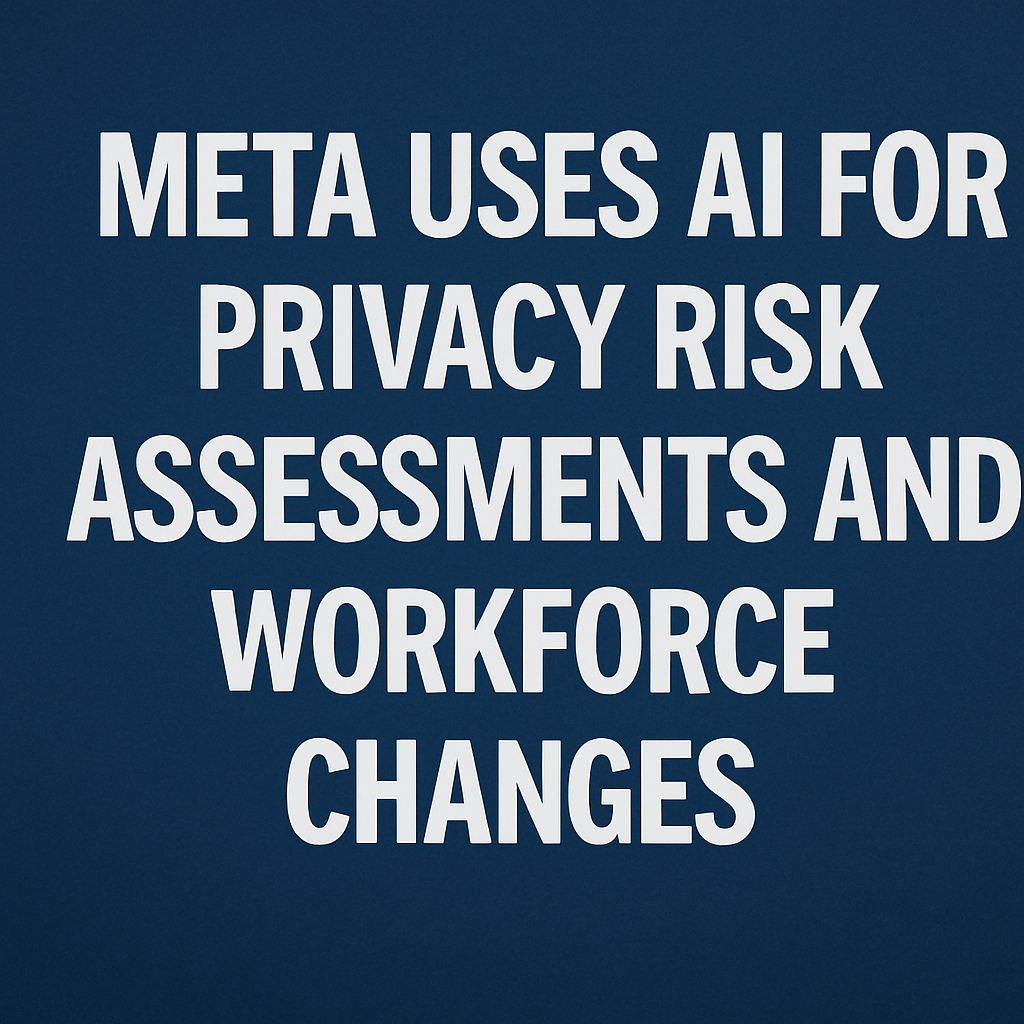Meta Uses AI for Privacy Risk Assessments and Workforce Changes

Meta, the parent company of Facebook, is taking bold steps toward automating key functions within its organization. According to internal documents reviewed by NPR, up to 90% of risk assessments previously conducted by human staff could soon be managed by artificial intelligence. This shift raises significant questions about the future roles of human employees within the tech giant and signifies a broader trend in the industry.
The Role of AI in Assessing Privacy and Societal Risks
Historically, human experts at Meta have been responsible for evaluating privacy concerns, content integrity, and societal risks associated with the platform. However, this framework is on the verge of transformation. Internal communications suggest that AI algorithms may soon handle sensitive evaluations concerning AI safety, youth risk, violent content, and the distribution of misinformation, which were traditionally done by a dedicated team of risk assessors. This shift has profound implications for regulatory compliance and ethical oversight.
Automation’s Potential and Risks
A Meta spokesperson explained the company’s rationale: “As risks evolve and our program matures, we enhance our processes to better identify risks, streamline decision-making, and improve people’s experience.” They assert that while AI will manage low-risk decisions, human oversight will remain critical for complex assessments. However, the documents obtained suggest AI’s role may extend beyond low-risk scenarios.
- Automation Efficiency: AI’s ability to analyze vast data sets can lead to quicker assessments, potentially allowing Meta to react faster to emerging privacy threats.
- Decision-Making Consistency: AI can provide uniformity in evaluations, reducing the risk of human bias.
- Resource Redistribution: With routine assessments automated, human resources can be reallocated to more strategic tasks.
Nevertheless, concerns about the degradation of assessment quality emerge, especially in cases requiring nuanced understanding and ethical considerations. Zvika Krieger, who held a position at Meta’s Responsible Innovation division, cautioned that pushing AI to the forefront of sensitive assessments could lead to suboptimal outcomes.
Industry Context: AI Adoption Across Major Companies
Meta is not alone in this AI revolution. Other companies, such as Klarna, Salesforce, and Duolingo, are also exploring or implementing AI-driven solutions, often at the expense of human roles.
- Klarna: CEO Sebastian Siemiatkowski has openly acknowledged the promise of AI, even suggesting that high-profile roles like CEO and banker could face replacement as the company leans into AI for efficiency, reducing its workforce from 4,500 to 3,500 employees.
- Salesforce: The cloud software giant has announced job cuts as it shifts focus towards hiring AI capabilities for sales, a move that mirrors the automation trend seen at Meta.
- Duolingo: The language learning platform is adopting an “AI-first” approach, offering assurances about job security while simultaneously acknowledging the transformative potential of AI in their operations.
Expert Opinions on the Future of Work
Experts in the field have expressed mixed views about the increasing reliance on AI in assessing privacy and societal risks. The key concern lies in finding a balance between leveraging AI for its strengths, such as data processing and efficiency, while ensuring that critical human elements—like ethics and empathy—are not lost in the automation process.
“While AI can enhance efficiency, it cannot fully replace the human ability to navigate complex social dynamics and ethical ramifications,” says Dr. Emily Norton, a researcher specializing in AI ethics. “It is crucial to maintain a hybrid approach where technology complements human expertise rather than replaces it entirely.”
Conclusion: A Future in Flux
As Meta and other leading tech firms push toward AI integration, the landscape of employment and operational protocols is set to shift dramatically. While the promise of automation brings potential cost savings and efficiency, it simultaneously challenges the future of human roles in tech. As these trends continue to unfold, stakeholders at all levels must prepare for a transformed work environment.